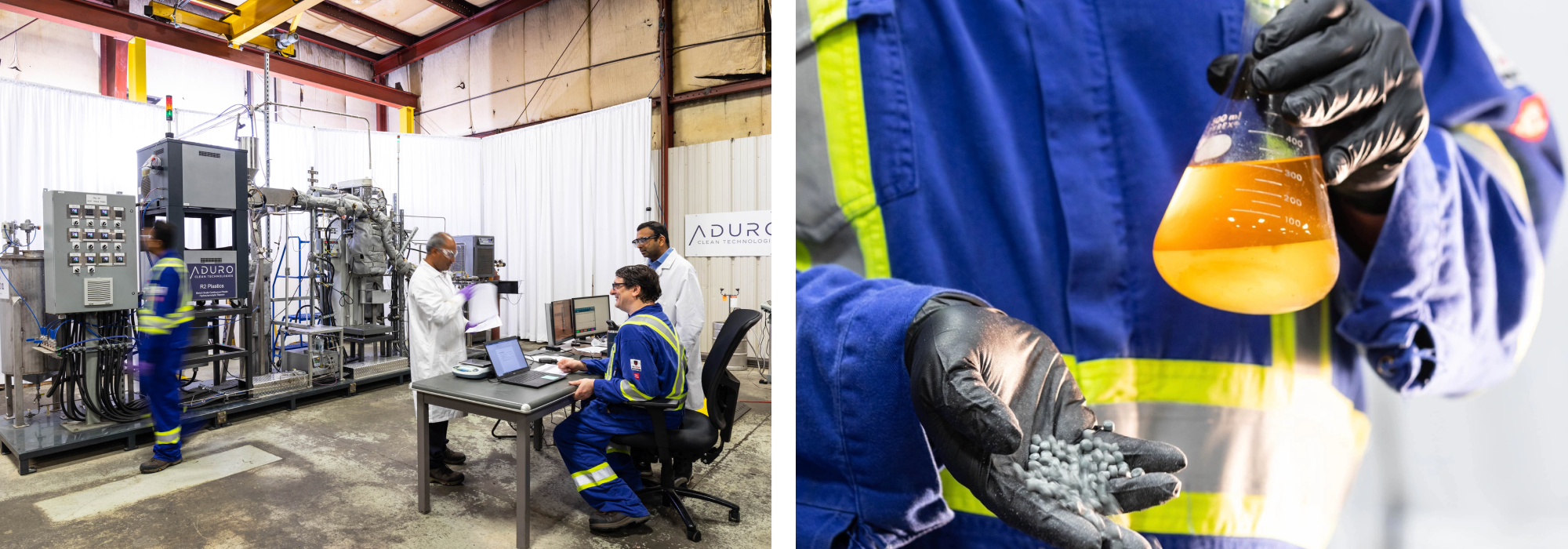In recent years, chemical recycling has gained attention as a promising technology to tackle the growing global plastic waste problem. However, as with any emerging technology, it has also been surrounded by myths and misconceptions. While these myths often stem from concerns or misunderstandings, they provide an excellent opportunity to explore the nuances of chemical recycling and its potential impact on the plastic, oil and gas industry. Let's take a closer look at some of these myths and uncover the truth behind them.
Chemical Recycling Myths
Chemical recycling is a dynamic technology that is often misunderstood. By understanding the true capabilities of chemical recycling, we can appreciate its role in creating a more sustainable future which meets our world’s unavoidable demand for plastic, oil, and gas.
1. Chemical Recycling is Just Incineration in Disguise
One of the most common misconceptions is that chemical recycling is essentially the same as incineration, leading to pollution and energy waste. While it's true that both processes involve breaking down materials, they operate on entirely different principles and outcomes.
Unlike incineration, which burns plastics and releases harmful emissions back into the environment, chemical recycling breaks down plastic waste into its original chemical components through a controlled, closed-loop process. At Aduro, for example, we use water-based chemistry to break down hard-to-recycle plastics into valuable chemicals that can be recycled and reused. It's an environmentally friendly method that doesn't just melt plastic but transforms it back into high-quality materials, like feedstock for new plastics, to reduce waste and support a circular economy.
2. Chemical Recycling is Not Environmentally Friendly
Some critics argue that chemical recycling consumes too much energy and generates significant emissions, making it less environmentally friendly than traditional recycling methods.
While chemical recycling does require energy, technological advancements are continuously improving the efficiency of these processes. When you consider the full lifecycle of plastics, from their initial production to their disposal in landfills, chemical recycling technologies can significantly reduce the overall environmental impact of the traditional plastics industry. By breaking down plastics into their original building blocks, this process of chemical recycling can produce high-quality stock feed for new products, meaning we can use fewer materials for longer, lowering the demand for fossil fuels and cutting down on greenhouse gas emissions.
3. Chemical Recycling is Not Economically Viable
Another myth is that chemical recycling is too expensive and cannot compete with the cost of producing new plastics from virgin materials. While chemical recycling technology is still evolving, the economics of the process are improving rapidly. As the demand for sustainable materials grow and regulations around plastic waste become stricter, chemical recycling is becoming a more attractive solution for businesses and governments alike.
The ability to convert a wide range of types of plastic pollution and waste into high-quality raw materials means that chemical recycling can address the limitations of traditional mechanical recycling, which often struggles with contaminated or complex plastics. By unlocking the value of previously unrecyclable plastics, chemical recycling has the potential to create new revenue streams and drive economic growth in the recycling sector and beyond.
4. There is Only One Way to Chemically Recycle
A common misconception about chemical recycling is that it involves only a single, standardized method. This myth suggests that the process is rigid and lacks flexibility. However, the reality is that chemical recycling is a dynamic and evolving field with a range of methods designed to address different materials and recycling needs
The Hydrochemolytic process, as used by Aduro, is an innovative method that uses water and catalysts under specific conditions to break down complex polymers into simpler compounds. This process is particularly effective for processing mixed and contaminated plastic waste, turning it into valuable chemicals and fuels. The development of specialized methods, like the Hydrochemolytic process used by Aduro, showcases the flexibility and adaptability of chemical recycling technology.
Chemical recycling is a promising technology that could make a big difference. At Aduro Clean Technologies, our chemical recycling technologies have the potential to make more plastics recyclable, heavy oils more environmentally sustainable, and renewable fuels more cost-effective, and we are just getting started. Learn more about our technology here.

